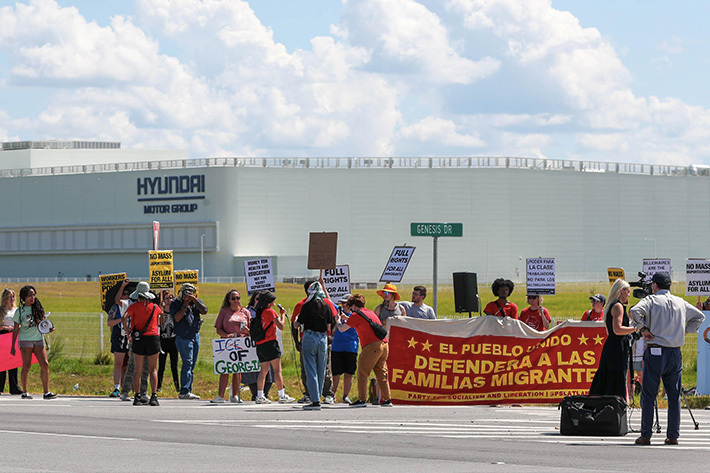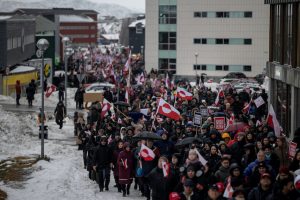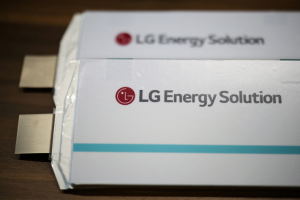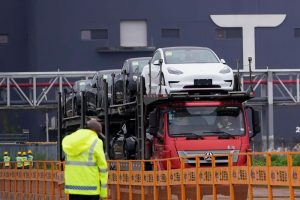The shocking raid by the US’ immigration enforcement agency on a Hyundai plant last week came after growing warnings to South Korean firms against exploiting visa loopholes, workers, officials and lawyers have told Reuters.
South Korean firms are traditionally required to apply for short-term work visas for specialists needed in their high-tech plants in the United States, and for years, they have said they struggle to obtain those visas.
That led them to rely on a grey zone of looser interpretation of visa rules under previous American administrations.
Also on AF: Seoul Bids to Ease Anger Over Mass Arrests at US Hyundai Plant
That changed, however, in the early days of US President Donald Trump’s second term, workers say.
Some workers were denied entry to the United States under statuses that did not fully allow work, according to Reuters interviews with more than a dozen workers from various companies, government and company officials, and immigration lawyers.
The key concern here was the visa designation. Many of the more than 300 South Korean workers that were arrested in the raid last week were skilled workers who were sent to the US to install equipment at Hyundai’s near-complete factory.
But they arrived on a visa waver programme, or B-1 business traveller visas, which largely did not allow work, three people said.
“It’s extremely difficult to get an H-1B visa, which is needed for the battery engineers. That’s why some people got B-1 visas or ESTA,” said Park Tae-sung, vice chairman of Korea Battery Industry Association, referring to the Electronic System for Travel Authorization.
‘Begged them not to go’
Korean foreign ministry official Kim Dong-min told Reuters in July that a lack of proper work visas for contractors forced them to turn to the ESTA to travel to the US quickly
One person who works at the Georgia site told Reuters that this had long been a routine practice. “There was a red flag … They bypass the law and come to work,” the person said, asking not to be named because of the sensitivity of the matter.
An equipment technician in South Korea, who previously worked with six of the people arrested in the raid, said: “I warned them they could screw up their lives if they are caught.”
“I begged them not to go to the United States again,” he said, speaking on condition of anonymity.
He said he had once obtained a B-1 visa from the United States by claiming he was a supervisor, rather than an equipment specialist.
Another equipment technician working as a contractor with LG Energy Solution (LGES) said his application for a B-1 visa to work at Hyundai’s Georgia factory was rejected earlier this year, without explanation. When he then tried to fly to Mexico and cross the border, he was blocked from boarding the flight in Seoul.
“We thought the US was our ally … but they are treating me like an illegal immigrant,” he said. LG Energy Solution is working with Hyundai to build the factory.
Companies were aware
US Department of Commerce official Andrew Gately warned South Korean companies and their contractors last year not to “cut corners” in visa applications.
“Please do not put your employees or the employees of your contractors at risk,” he said at a seminar in Seoul.
Workers had also previously expressed concern that they could be caught in between Trump’s immigration crackdown and corporate efforts to protect investments in the United States that are at the centre of ongoing trade and tariff talks.
Officials at LGES were aware of the long-standing issues and some of the companies’ employees and contractors were reluctant to travel to the United States for fear of being denied entry, two of the sources told Reuters.
“LG Energy Solution has been actively working to resolve visa issues” for its employees and subcontractors, including holding visa briefing sessions through law firms to “prevent legal issues,” LGES said in a statement when asked by Reuters about its employees’ visas.
In response to Reuters’ questions about the allegations of immigration violations by subcontractors at the site, Hyundai Motor referred to a statement that said it has “zero tolerance for those who don’t follow the law” and would investigate the employment practices of suppliers and their subcontractors.
LGES said 47 of its employees were arrested in the Georgia raid, and warned the rest of its workers in the United States to leave or shelter at home.
There was no sign that any Hyundai employee was detained. Most of the people detained were employees of subcontractors, rather than direct employees, LGES and Hyundai Motor have said.
Trump’s changing policies
The detainees in Georgia are now set to be released and sent home. South Korea will send a chartered plane to Atlanta as early as Wednesday to bring them back.
At a cabinet meeting, South Korean President Lee Jae Myung said Seoul would negotiate with Washington to achieve a reasonable resolution to the situation based on the spirit of their alliance. He said he felt a “heavy responsibility” for the detained nationals.
But the raid casts a shadow over business ties between the US and South Korea, a major source of foreign investment into the United States. South Korea has long called for creating a new US visa category for skilled workers similar to the ones for US free trade partners like Australia and Singapore, but the move has made little progress.
Meanwhile, the Trump administration is making the process of visa applications increasingly complicated for foreign workers. Just this week, the US State Department has issued a directive for Australian workers that says they will need to travel back home to renew visas every two years.
The policy would make it tougher for thousands of Australians to work longer in the US, the Australian Broadcasting Corporation reported.
Trump has also said that companies need to hire and train American workers and respect immigration laws.
Still, South Korea’s foreign minister departed for Washington on Monday, with visa reforms at the top of his agenda. He will also seek assurances that the Koreans returned home will be allowed to eventually re-enter the United States.
- Reuters, with additional editing and inputs from Vishakha Saxena
Also read:
Lee Survives White House Test, Trump Keen to Meet Kim Jong Un
S Korea’s Lee Will Try to Pacify Trump With Big Shipbuilding Boost
S Korea to Invest $450bn in US Projects, Energy; Gets 15% Tariff
Tariffs Spur Big Tesla Deals With LGES Batteries, Samsung Chips
S Korea Forms Task Force to Speed up Trade Talks With US
South Korea Keen to Sell Submarines to Canada, Paper Says
US Lowers Japan Auto Tariffs But Some Carmakers Will Still Hurt
Trump Will Ask Supreme Court to Allow Tariffs After Legal Setback
























